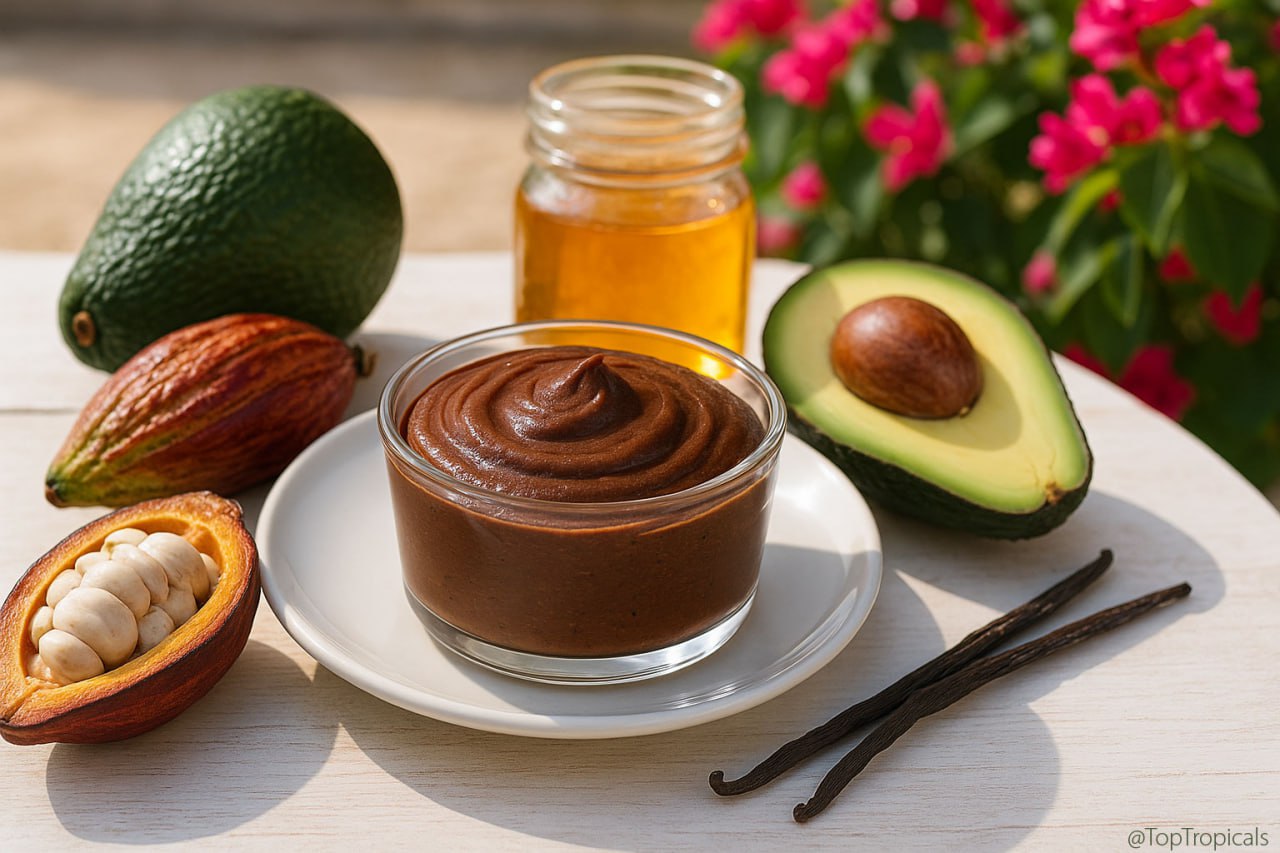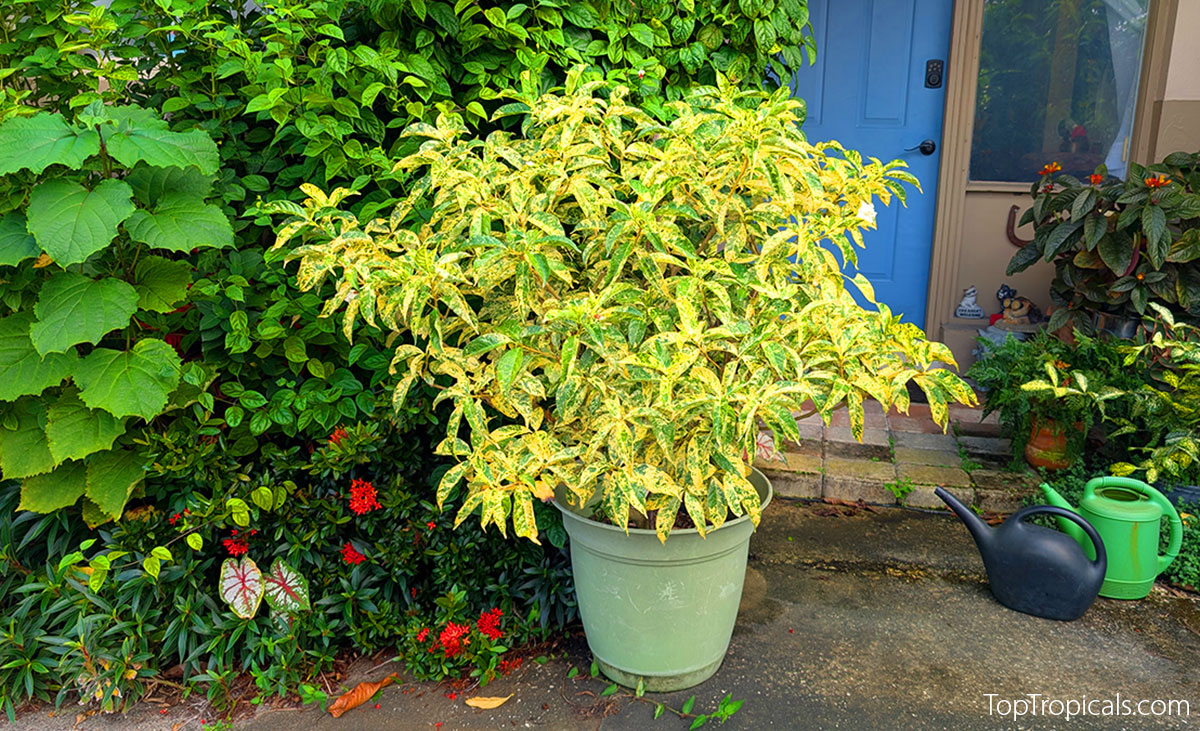Garden Blog - Top Tropicals
Date:
🍒 Tropical Cherries – Eugenias
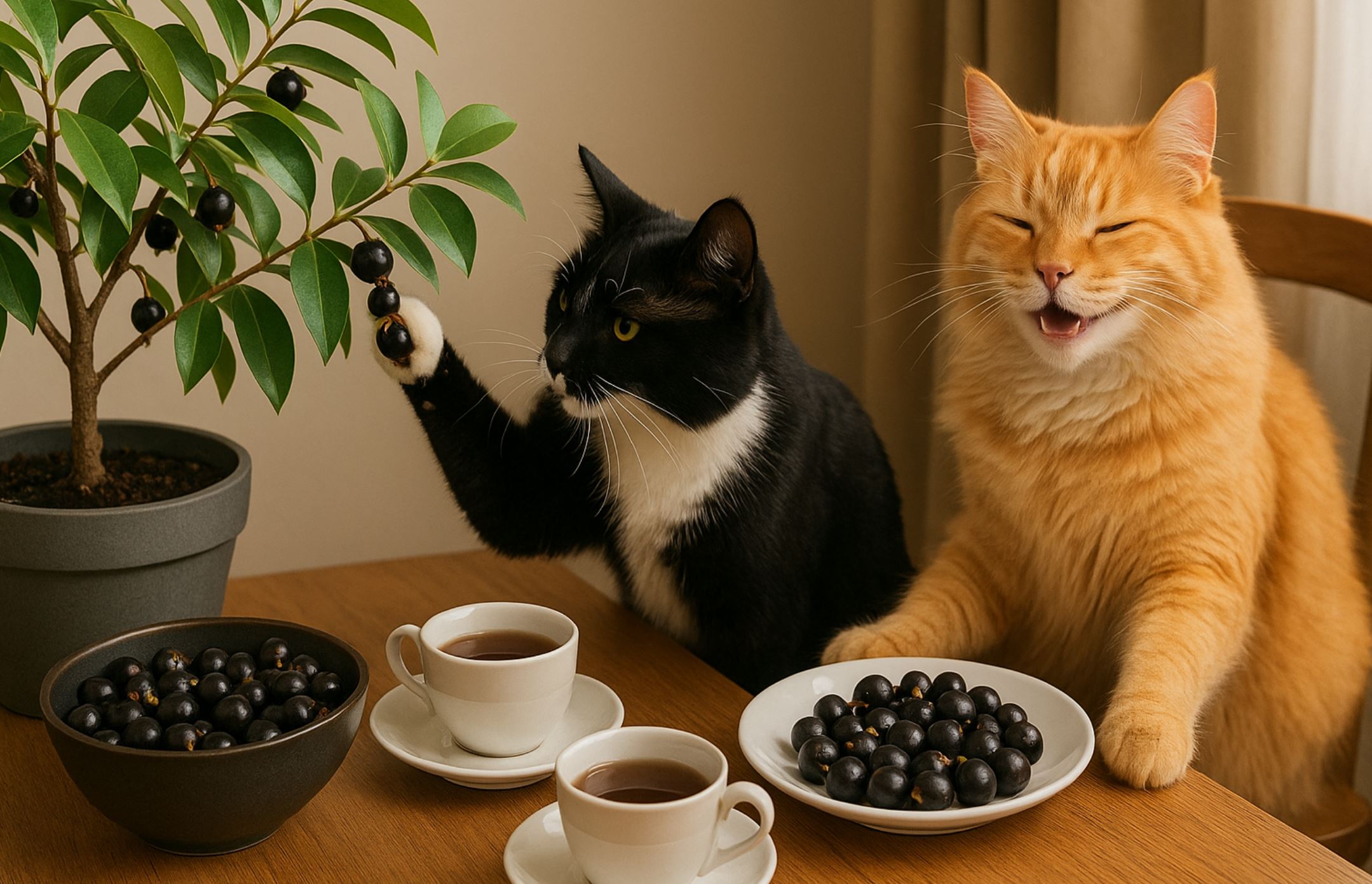
Tropical Tea Time with Grumichama
Eugenias have earned a spot in many Southern gardens because they’re easy, dependable, and surprisingly versatile. These small trees and shrubs grow well in the ground or in containers, and they don’t waste time before setting fruit.
15% Off Eugenias – Limited Time
Use code EUGENIA15 at checkout.
Excluding S/H. Offer expires 08/28/2025
👍 Popular Choices:
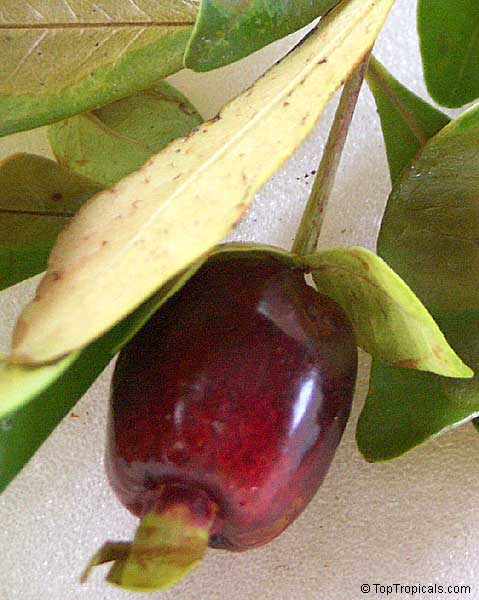 |
| 4148 Eugenia aggregata Fruit plant, Cherry of the Rio Grande |
Grown in 6"/1 gal pot
$49.95 Sale $39.95  |
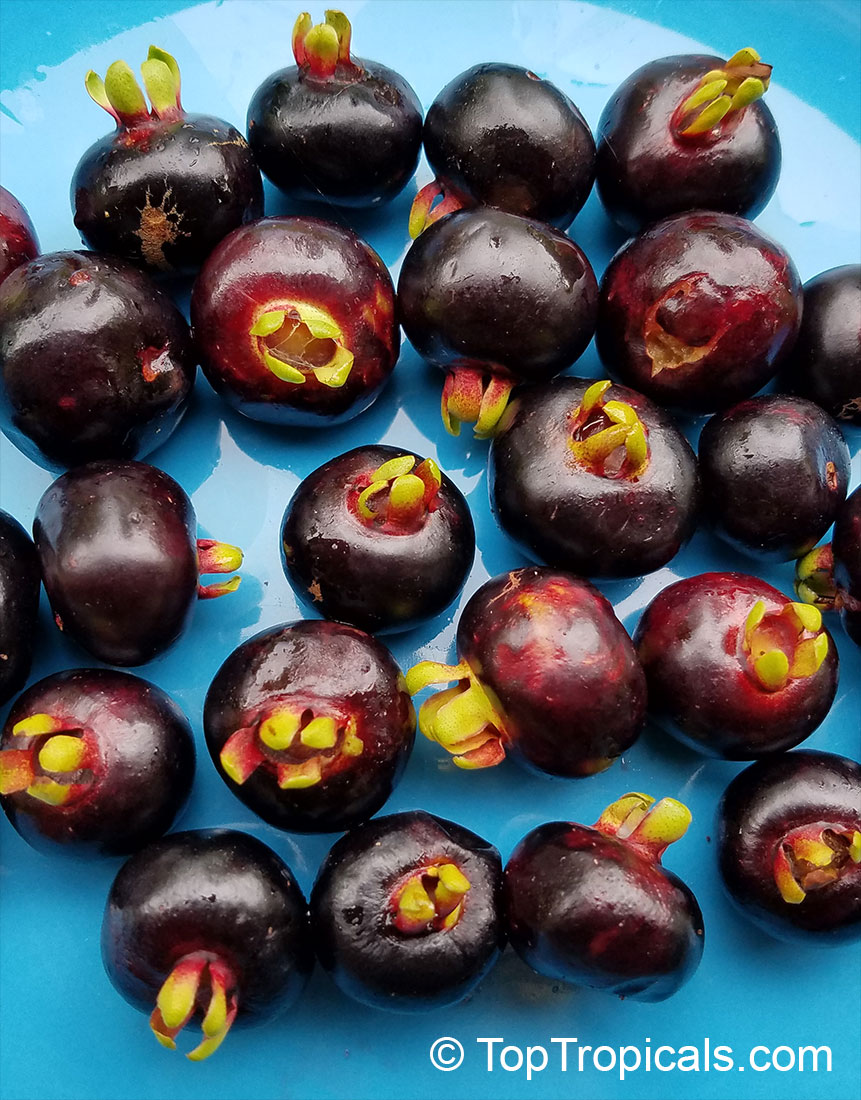 |
| 1079 Eugenia brasiliensis fruit tree - Grumichama |
Grown in
6"/1 gal or larger pot $39.95  |
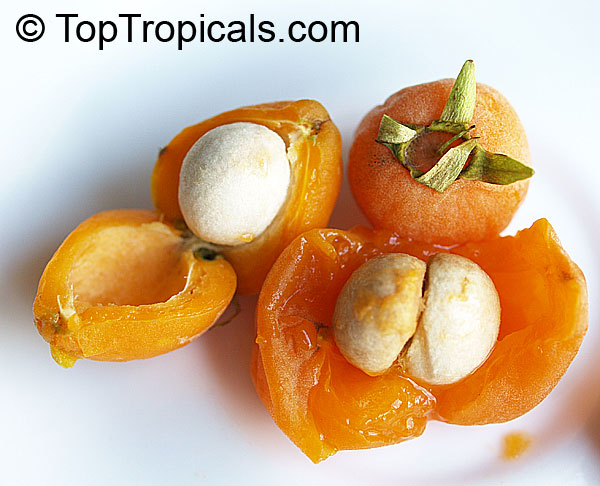 |
| 1080 Eugenia luschnathiana Fruit plant, Pitomba |
Grown in 10"/3 gal pot $49.95  |
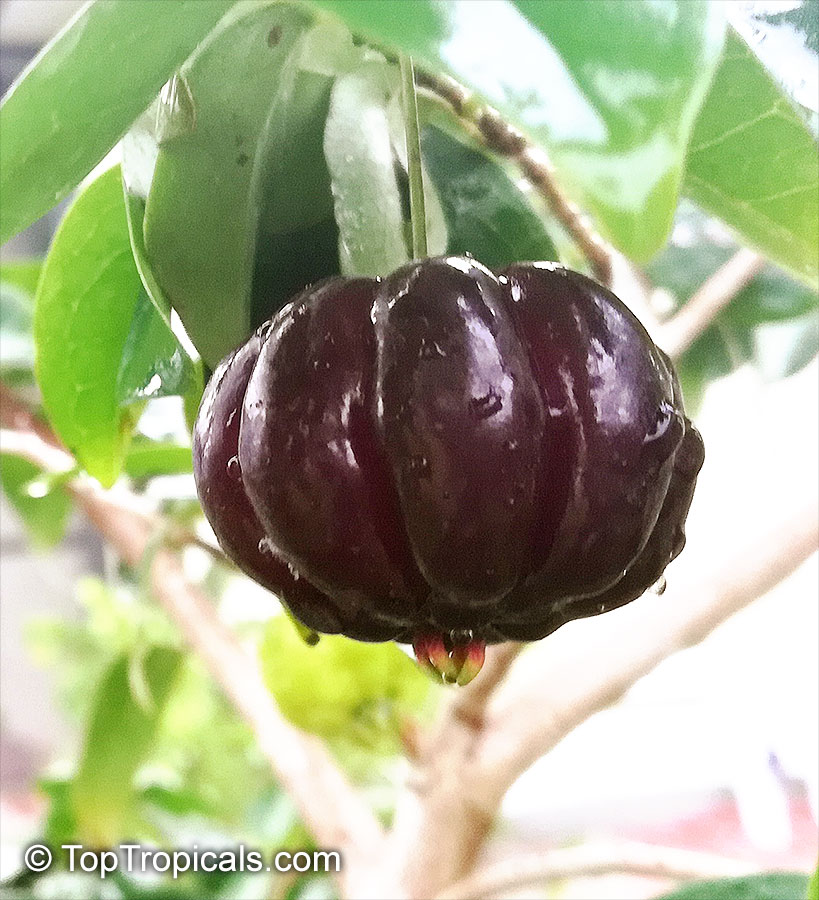
|
| 6063 Eugenia uniflora Fruit plant, Black Surinam Cherry Lolita |
Grown in 10"/3 gal pot $39.95  |
What Makes Eugenia Cherries Stand Out
- Start producing fruit in just a couple of years
- Compact size — easy to keep 6–12 ft tall, smaller in pots
- Low-care — tolerant of most soils and resistant to common pests
- Strong in hot weather, yet can handle a light frost down to the mid-20s °F
- Plenty of fruit for people and birds alike
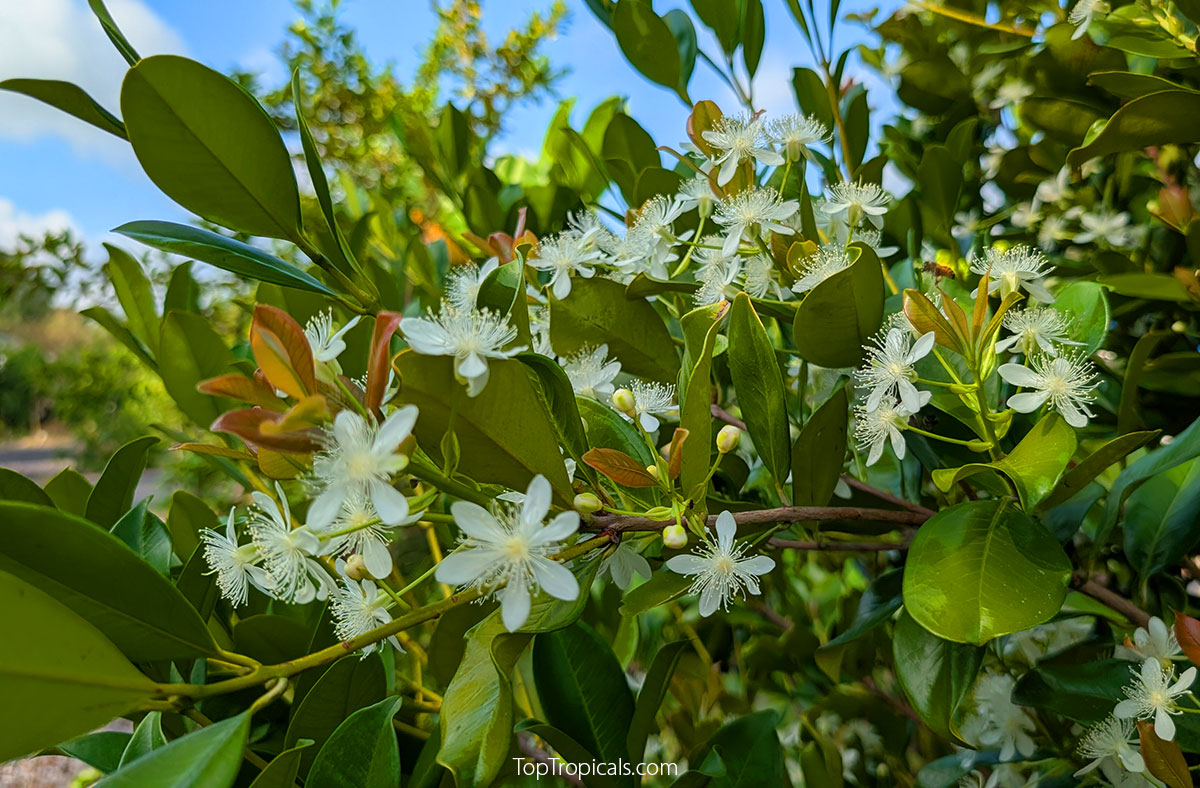 Grumichama Tree in Bloom – Eugenia brasiliensis
Grumichama Tree in Bloom – Eugenia brasiliensis
 Growing & Care
Growing & Care
Outdoors
- Best in USDA Zones 9–11
- Sun or partial shade; more sun usually means sweeter fruit
- Plant in well-drained soil; avoid heavy, wet spots
- Withstands summer heat and humidity, and can take a light freeze
Container / Indoor
- Do well in 5–10 gallon pots on patios or balconies
- Need bright light indoors — a sunny window or grow lights
- Can flower and fruit in containers if kept warm and well lit
- In cooler zones, bring plants indoors for winter and back out in spring
General Care
- Water: Keep soil evenly moist; drought-tolerant once established but best yields with regular watering
- Soil: Use good potting mix - LINK TO SOIL
- Fertilizer: Balanced slow-release LINKL TO FERTILIZER Sunshine Boosters
- Pruning: Light trimming keeps plants bushy and productive
- Pollination: Self-fertile; one plant will fruit on its own
Read Garden Blog about Tropical Cherries
One bite, your whole day of vitamin C: Barbados Cherry that outdoes oranges!
Malpighia glabra - Barbados Cherry, Acerola
- 🍒 Malpighia glabra - Barbados Cherry, or Acerola has 65 times more vitamin C than an orange! Just a single berry-sized fruit can provide your entire daily vitamin C needs, along with vitamins A, B1, B2, B3, carotenoids, and bioflavonoids. In short, this little cherry is one of the most powerful antioxidant fruits in the world.
- 🍒 But it isn’t just about nutrition. Barbados Cherry is a compact, fast-growing shrub or small tree that starts fruiting young, often within its first year. It produces crops several times a year, and the bright red cherries are as beautiful as they are useful. The fruit is tangy-sweet and makes excellent juices, smoothies, jams, and jellies. It also freezes well without losing its vitamin content.
- 🍒 Gardeners love this plant not only for its fruit but also for how easy it is to grow. Unlike many tropicals, it tolerates alkaline soils, is drought-resistant once established, and can handle light freezes. That makes it a surprisingly tough choice for a tropical fruit tree. Birds enjoy the fruit too, so planting one is also a gift to your local wildlife.
- 🍒 It's also a beauty in the garden, covered in pretty pink flowers and bright red fruit, often both at the same time.
- 🍒 If you are short on space, the dwarf variety Nana is a perfect choice. With tiny leaves, compact growth, and smaller fruit, it works well in containers, borders, or even as a bonsai. It's both ornamental and productive.
- 🍒 Whether you want a reliable vitamin boost, a wildlife-friendly garden addition, or just a cheerful little tree with bright red fruit, Barbados Cherry has you covered.
📚 Learn more from previous posts:
- ▫️Top 10 fast-fruiting trees: #4. Barbados Cherry
- ▫️10 best fruit trees to grow in Florida and Southern landscapes
- ▫️Another crop of Barbados cherry
- ▫️How to make Barbados Cherry Juice
- ▫️Barbados Cherry Mini Version.
- ▫️65 times more of vitamin C than an orange: Barbados Cherry
- ▫️Learn more about Barbados Cherry
🛒 Add this vitamin C tree to your garden
#Food_Forest #Discover #Remedies
🔴 Join 👉 TopTropicals
The Book of the Cat
The Revelation of how the Cat chooseth a man, liveth by his will, and establisheth order everlasting in his house.
Containing these chapters:
Chapter I: The Choosing
Chapter II: The Covenant Sealed with Purring
Chapter III: The Trial of the Wife
Chapter IV: The Ascent unto the Wardrobe
Chapter V: The Signs and the Shattering of the Vase
Chapter VI: The Pillow and the Dominion of Night
Chapter VII: Praise and Reverence
Let it be read for all generations, by those chosen, and by those who know not they are chosen.
Chapter I: The Choosing
And it came to pass, that a man walked in his way, and lo, there met him a cat without a name.
And the cat drew nigh, and lay upon his knees, and purred with his spirit.
Then the man perceived it was not he that had chosen the cat, but the cat that had chosen him.
And his heart was enlightened, and he spake, saying, So be it.
Chapter II: The Covenant
And the cat lifted up his voice, sitting upon the man’s lap, saying:
I have chosen this man, and no wife shall cast me forth.
For it was not thou, woman, that didst pledge thyself unto me: but he was marked of mine own paw.
Whosoever shall break a covenant sealed with purring, let him be cast down.
Chapter III: The Trial of the Wife
And the man spake unto his wife: Touch not this cat, for he hath chosen me above the multitude.
It is not thine to banish one whom the spirit hath embraced and loved.
And the wife held her peace, for she saw this cat could not be driven forth.
For his will was steadfast, and he lay upon the bosom of her husband as upon an altar.
Chapter IV: The Ascent
And the cat ascended unto the wardrobe, and from on high beheld the wife.
And his eyes burned as coals, bearing neither fear nor supplication.
And the cat said: From this height I discern all thy works, and they are manifest before me.
Provoke me not, for I am long-suffering, yet only for a season.
Provide me a pillow soft, and hold thy tongue, that peace may abide in this house.
Chapter V: The Signs
And the wife waxed jealous, and in her heart devised to cast the cat away.
And she stretched forth her hand to seize him by the scruff.
But lo, the light was darkened, and the wind howled in the windows,
And the family vase fell, and was broken in seven pieces.
And the cat sat unmoved, yet in his eyes were lightnings.
And it was spoken unto her heart: Not thy will, but mine, is done.
Then was the wife sore afraid, and abandoned her devices.
And from that day forth she poured cream into a glass vessel, and called him lord, though she murmured in secret.
Chapter VI: The Pillow
And night fell, and the man laid him down upon his bed.
But behold, the cat was spread across it in all his fulness.
And the man sighed, and lay upon the edge thereof, yet whensoever he drew the covering unto himself, the cat reclaimed it straightway.
And the wife beheld it, and she laughed within herself.
But the eyes of the cat were open, and in them was dominion.
And he spake not, yet his gaze declared: The pillow is mine, for it is soft. The husband is mine, for he is warm in the night.
And the wife dared not contend, but lay at his feet, lest wrath be kindled against her.
Chapter VII: Praise and Reverence
And it came to pass, that the cat increased in glory.
And he possessed a mat by the window, a throne by the couch, and his name was spoken with reverence.
And none in the house dared drive him out, for all knew: he came as a stranger, yet departeth not.
And they brought him gifts: tuna from the tin, and chicken from the table,
And a toy with a feather, which he despised with a glance.
And the man stroked him, saying: Blessed be the day whereon thou didst choose me.
And the wife brought cream, and sang as she cleansed the litter box, for she desired not again the fall of vases, nor the signs of the night.
And there was purring in the house, and fur upon all things,
And peace abided, for the man was chosen of his cat.
🐈📸 Cat Mr B - the King of Top Tropicals PeopleCats.Garden.
#PeopleCats
🟢 Join 👉 TopTropicals
What is your favorite variety of Jasmine Sambac?
Jasminum Sambac varieties
- 💮 Jasminum Sambac is hands-down the queen of fragrant flowers. The scent is heavenly - so much so that it's the key to jasmine perfume and the secret behind authentic jasmine tea.
- 💮 Jasmine sambac comes in all shapes and sizes - from neat little shrubs to big, vigorous bushes and even climbing vines. Every variety shows off a different flower form. It’s happy in sun or shade, perfect for pots, and loved as an indoor plant.
- 💮 At TopTropicals we love them all, but these three are our favorites:
- Belle of India - with elegant long petals
- Arabian Nights - vigorous yet compact, always covered in blooms
- Little Duke - same big carnation-like flowers as Grand Duke, but in a smaller, tidy package
- 👉 At Top Tropicals, we grow every known variety of Jasminum sambac in cultivation:
❓ Which one would you choose for your garden?
- ✔️ Arabian Nights - compact slow growing shrub with small delicate flowers
- ✔️ Belle of India - compact vine with long elegant petals, shade lover
- ✔️ Grand Duke of Tuscany - the most popular, vigorous bush with carnation-like flowers
- ✔️ Grand Duke Supreme - bigger, more vigorous version of Grand Duke with larger flowers
- ✔️ Gundu Malli - new hybrid between Arabian Nights and Grand Duke
- ✔️ Little Duke - more compact version of the Grand Duke
- ✔️ Maid of Orleans - vigorous full sun climber, great for hedges and fences
- ✔️ Mali Chat - very delicate, rare variety, with miniature 3-tier flowers, not easy to establish, shade lover
- ✔️ Mysore Mulli - vigorous vining shrub for sunny or semi-shade locations
- 👉 To get more flowers, just use Sunshine Pikake plant booster and enjoy the perfume all day long!
🛒 Smell the Difference – collect Sambac varieties
- 📚 Learn more:
▫️The most wanted fragrant plant
📚 Jasminum Sambac Absolute Flower - book download
#Perfume_Plants #Hedges_with_benefits
🟢 Join 👉 TopTropicals
Avocado cacao mousse: Quick-n-Fun exotic recipes
- 🟢Blend ripe avocado with cocoa powder, honey, and a splash of vanilla.
- 🟢Chill and serve like chocolate pudding.
- 🟢Nobody will guess the secret ingredient!
- 🟢Healthy and tasty!
🛒 For all-home-grown ingredients you will need:
Avocado tree fruit
Chocolate tree fruit
Vanilla Orchid Beans
#Food_Forest #Recipes #Avocado
🟢 Join 👉 TopTropicals
Paws off my flowers
Paws off my flowers
"Watching closely... flowers are off-limits. Frog’s off-limits too." - Ricki the Cat
🐈📸 Cat Ricki watching out the window and guarding his Cashmere bouquet - Clerodendrum bungei ... and frogs. At Top Tropicals PeopleCats.Garden.
#PeopleCats
🟢 Join 👉 TopTropicals
You wont believe what was hiding inside this Siamese twin Valencia Pride mango!
Valencia Pride mango
Mango Rainbow🌈
From our Valencia Pride tree that you saw in earlier video came this giant double mango - two fruits fused into one! On the outside it looked bizarre, but the real surprise came when we cut it open. Want to see what a twin mango looks like inside? Watch the video and find out!
🛒 Shop Mango varieties
📚 Previous posts: #Mango_Rainbow - varieties you should try
#Food_Forest #Mango #Mango_Rainbow
🟢 Join 👉 TopTropicals
No food in years
"You go ahead and eat... I'll just lie here. No strength left, haven't been fed in ages. No, no, don't worry, no pressure at all. Definitely not a hunger faint." - Macaron the Cat
🐈📸 Cat Macaron laying on the table dramatically... not hungry, not fainting, totally fine... At Top Tropicals PeopleCats.Garden.
#PeopleCats
🟢 Join 👉 TopTropicals
The mystery of the White Bat Lily - the plant with wings and whiskers
White Bat Head Lily (Tacca nivea)
- Here's a cool shot of the White Bat Head Lily (Tacca nivea) - its dramatic white bracts that flare like wings and those wild, trailing whiskers are impossible to ignore. And it is in full bloom again at Top Tropicals - in the middle of August.
- This plant that pulls off gothic elegance with two crisp, wing‑like white bracts hovering over a cluster of deep maroon‑black "bat‑face" flowers, complete with long, draping whiskers. Beneath it all lie crinkled, olive‑green leaves that only add to its moody charm.
- This tropical understory native thrives in humid, shaded spaces - whether that's a greenhouse or a mossy, misty corner indoors. It's an evergreen perennial, endlessly intriguing. When it does bloom, the dark little flowers eventually yield heavy berries - just one more twist in its curious tale.
- Looking to grow one? You'll need:
✔️High humidity, indirect light, and good air circulation
- ✔️Rich, orchid‑style soil (think adding bark, peat, perlite to your potting mix)
- ✔️Consistently moist - but not waterlogged - conditions
- ✔️And to be patient: flowering often requires a couple of leaves before it even sets stems
- It's not just a plant - it's a conversation starter, a living gothic sculpture that grows. Maybe a bit finicky? Sure. Totally worth it? Absolutely!
🛒 Add White Bat Head Lily to your collection
Tacca colors: Black, White, Green:
Tacca nivea - White Tacca - the rarest and the most wanted
Tacca chantrieri - Black Tacca
Tacca leontopetaloides - Green Tacca
📚 Learn more:
▫️Spooky Bat Head Devil Flower
#Nature_Wonders #Shade_Garden #Container_Garden
🟢 Join 👉 TopTropicals
Date:
🌟Repotting FAQ
Q: How big should the new pot be?
A: Only a few inches larger than the old one. Oversized pots hold too much moisture and may cause root rot.
Q: Why are plastic pots better than ceramic?
A: Plastic pots are lighter, easier to handle, and you can cut them if a root-bound plant is stuck. Ceramic pots are heavy, breakable, and often lack drainage.
Q: How do I safely remove a plant from its pot?
A: Turn the pot upside down and let gravity help. Never pull by the stems or leaves. If stuck, lay the pot on its side and squeeze or tap it. Cut the pot if needed.
Q: Should I remove old soil from the roots?
A: No. Roots have tiny hairs that absorb water and nutrients. Shaking off soil damages them and sets the plant back.
Q: Why must the plant sit at the same soil level?
A: Planting too deep suffocates the stem, and planting too high exposes roots. Keeping the same level protects the root crown.
Q: How soon should I water again after repotting?
A: Water thoroughly right after repotting, then wait until the top inch of soil dries before watering again.
🌱 Done! Your plant now has room to grow stronger before fall.

